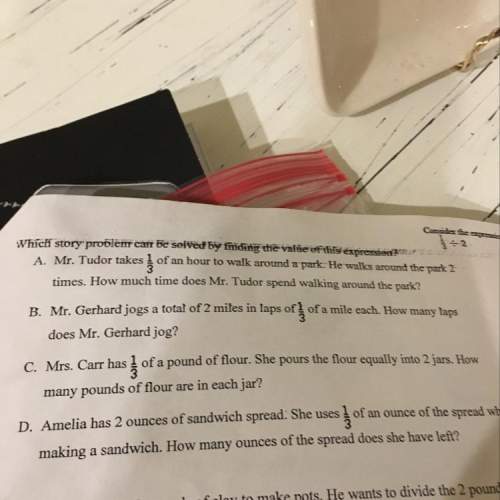Let f(x) = (x + 1)^2
Find a domain on which f is one-to-one and non-decreasing.
Fi...

Mathematics, 10.02.2020 08:26 marlesly87
Let f(x) = (x + 1)^2
Find a domain on which f is one-to-one and non-decreasing.
Find the inverse of f restricted to this domain.

Answers: 2


Another question on Mathematics

Mathematics, 21.06.2019 18:30
If you have the following equation, 2/3x+5/6-x=2-3/4x what would you multiply each term by to get rid of all the fractions
Answers: 3

Mathematics, 21.06.2019 19:00
What are the solutions of the system? solve by graphing. y = -x^2 -6x - 7 y = 2
Answers: 2

Mathematics, 21.06.2019 21:10
Which exponential function has an initial value of 2? f(x) = 2(3x) f(x) = 3(2x)
Answers: 1

Mathematics, 21.06.2019 21:40
The management of a supermarket wants to adopt a new promotional policy of giving a free gift to every customer who spends more than a certain amount per visit at this supermarket. the expectation of the management is that after this promotional policy is advertised, the expenditures for all customers at this supermarket will be normally distributed with a mean of $95 and a standard deviation of $20. if the management wants to give free gifts to at most 10% of the customers, what should the amount be above which a customer would receive a free gift?
Answers: 2
You know the right answer?
Questions

Mathematics, 17.10.2019 19:30




Mathematics, 17.10.2019 19:30



Chemistry, 17.10.2019 19:30

Mathematics, 17.10.2019 19:30

Social Studies, 17.10.2019 19:30


Mathematics, 17.10.2019 19:30





Mathematics, 17.10.2019 19:30



Business, 17.10.2019 19:30





